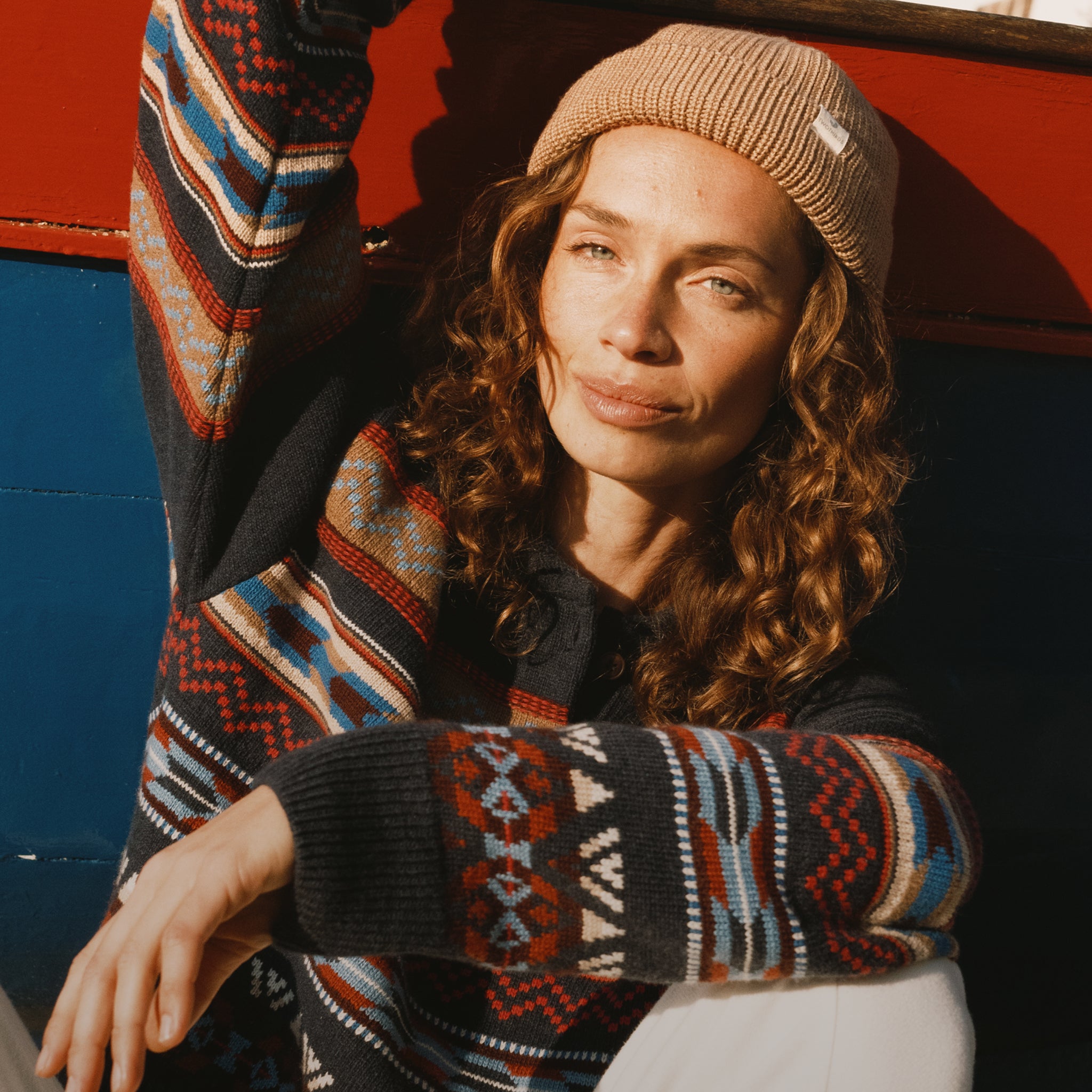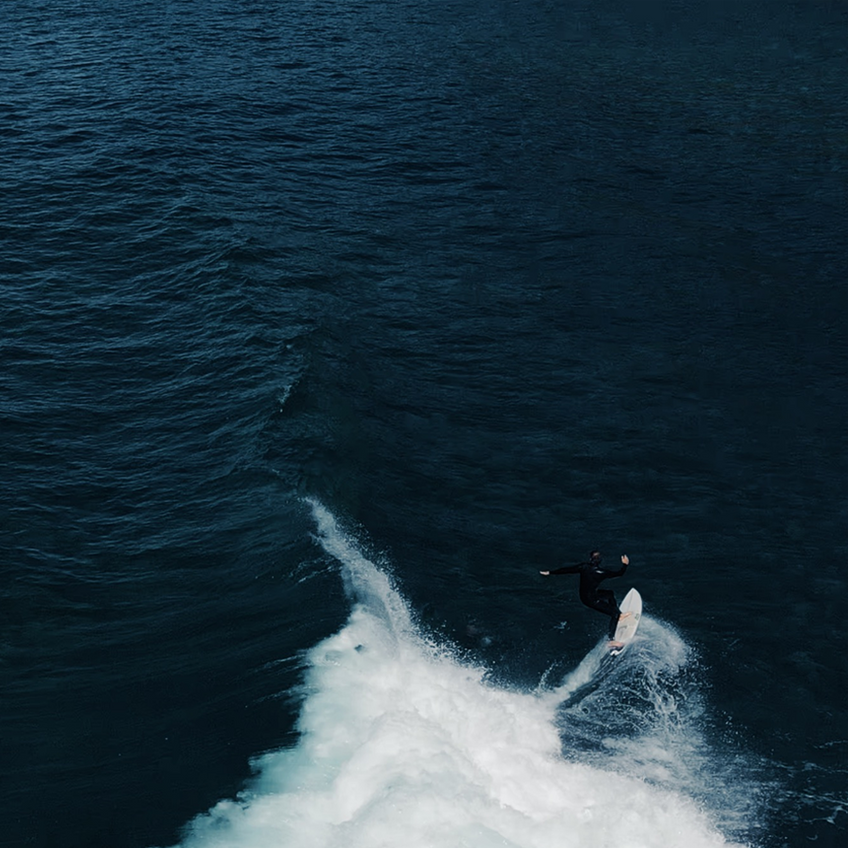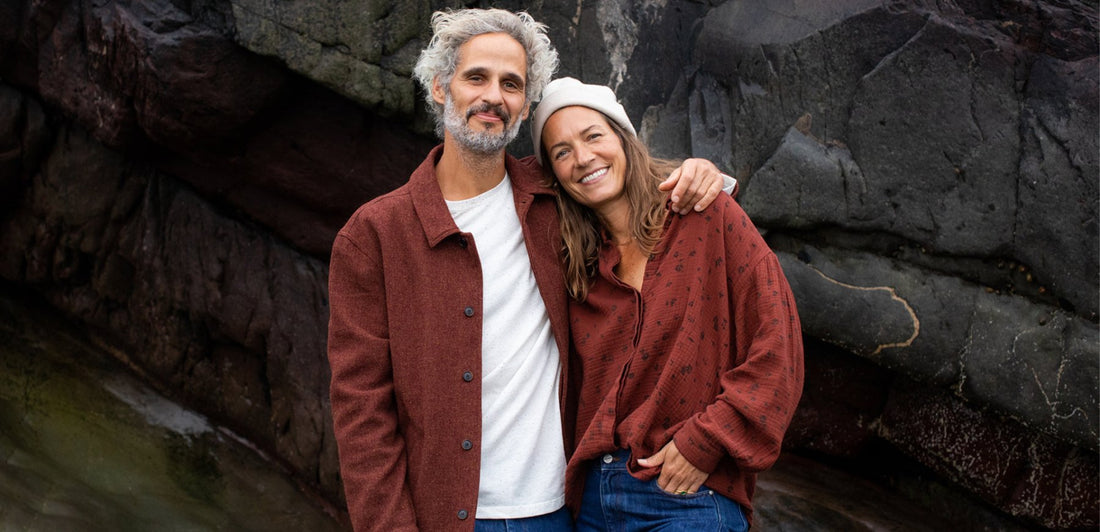Four years ago, Martin Penner and Taryn Elledge gave up a life of security and jumped into the unknown. Since then, they’ve been travelling the world with their three kids while running Quartier Collective: a company that hosts month-long gatherings for families who want to explore different cultures in a slow and inquisitive way. Though not without its challenges, this lifestyle has reinforced the family’s close bonds - helping them to ‘become more of a team’.
Warm, friendly, and in his own words ‘painfully optimistic’, Martin talked to us from a 17th century cottage in Provence, France, ahead of a busy schedule that will see them touch base in Portugal, México, Bali, Japan and potentially Egypt within the next 12 months.
How did you meet Lutz and Loreto?
Very early on in our travels we went to Barcelona.
Loreto and Lutz showed us around and I think we had like a thousand ice creams in our time there! But the relationship was really solidified when Francis, who was almost 6, broke his arm on a swing. We were like ‘oh my gosh, what do we do, what do we do?’. Lutz was our ambulance driver and Loreto was our translator!
Francis stayed in hospital for a few nights, and Loreto would bring chocolate, food, and books for him. When you have an experience like that with somebody you just see the goodness in them, you know? They were a real anchor to us.
So we stayed in touch and it’s been cool to see how they have grown TWOTHIRDS and their family!
I imagine you’ve had quite a few experiences like that?
Yeah, we made a conscious decision about how we were going to travel and it was less about the places we would want to see or the monuments we would like to tick off. We decided what was really important to us was to meet people - especially families who we found interesting.
If we didn’t know anyone we would rent a place near the best coffee shop in town, see interesting families and talk to them - asking them if we could buy them a coffee and if they could tell us about their life. Most of the time we would just meet amazing people and then the city would open to us like a cloud.

What made you leave Seattle and start this journey?
Seattle is a really amazing place to live, with a really good quality of life but we always had this frustration of (knowing that) the world is this big place. It felt like a good idea to pick everyone up, turn them upside down, shake them, and set them back down! And then the world looks different. I had that experience as a kid. I grew up in Canada in the bald, flat prairies. When I was 13, my dad got this wild idea that we should go and try something new so he sold our house, bought a big pick-up truck and drove us to Belize in Central America to live there for a year. That experience completely changed my life and I think in some way Taryn and I wanted that for our kids. This is four years now, which is longer than we expected but it just keeps working for us. It probably won’t be forever but we’re seeing.
“Our home is more ethereal than terrestrial.”
With all this moving around, do you feel like your sense of “home” has changed?
It has. We both come from North America, Taryn is from the United States. In North America everybody, except for the indigenous people, is not very far distant from the immigration experience. My family’s immigration was a few generations before me. So we’re not so rooted in terms of generational memory but we have this idea that roots can be people. Roots can be values and we find that sense of home all over the place. In a way, Barcelona is home for us, because we have this rich memory of breaking an arm and then working through that, having been helped and assisted by friends and then going back a bunch of times and reconnecting with those people, so we have these pockets of home in different places that stay connected digitally and are rekindled with return visits. But it is different from somebody who wakes up in the morning and knows what their world looks like outside their window.
So for our kids and for us, we know what our home is, but it’s more ethereal than terrestrial.
Your youngest, Viggo, was very little when you left! What did he make of the big adventure?
Travelling with Viggo was like having a skeleton key to the whole world cos he was so frickin’ cute and so outgoing and he would just talk to anybody. It was impossible to not have doors open when you were carrying around this little guy. The first time we took him on a big trip was to Morocco, when he was two. I’d been there once before but going back with Viggo was a totally different experience because instead of being this random man I was all of a sudden a father, a brother to people.
Now as they’re growing, it’s changing: kids get less automatically cute. They’re kind of like pets at that age, everybody loves your little pet! But it’s harder to love a six year old that you don’t know, because they are more complicated, they are more opinionated, more direct. But it opens up and gets richer in other ways too.

You use the phrase ‘world schooled’. Could you explain what that involves?
Yeah, sure!
So world schooling is a term used by people quite like us, where you imagine that the world is your classroom and you say: ‘I don’t need to take with me a bunch of requirements about what I’m supposed to learn, I’m going to extract learning experiences from what’s around me’. That’s not something confined to school age children either! That’s for us too.
It’s kind of cool because we can all go through it together and learn together. It does require some things, like a lot of faith that your kids will learn what they need. It requires a lot of time and the ability to be present with them when they ask a question or are chasing down some idea.
“We are giving our kids a sense of the interconnectedness of the world that will help them to think critically.”
How far into the future do you see that working?
That’s a really good question. It’s an easy thing to do when they’re very little - they basically taught themselves how to read. But once they start getting to about Matilda’s age, turning twelve, a more traditional system starts to have a lot of requirements for them.
And that’s a big challenge for this model of schooling. We think exams are generally pretty artificial and inaccurate portrayals of a kid’s knowledge or their abilities or their readiness to learn. And we also don’t think that they’re the only way to achieve goals (like getting into a top tier university). There are other ways. We already believe that, we’re committed to that.
We call them ‘durable human skills’: things that cannot be replicated or reproduced by machines basically. The ability to work with other people, and understand them, the ability to think creatively and invent new pathways, the ability to communicate effectively and the ability to understand the role diversity plays in producing an outcome. Those things are really well taught by a world schooling approach.


From a sustainability point of view, how do you manage your travels? Is that something you think about?
Yeah, no, we do think about that and our carbon footprint is heavy on air travel for sure. It’s very light in other ways and so when we became aware of the pollution of air travel we started thinking that each time we get on a plane there needs to be a really good reason. And then it’s just the question of: what’s the product of these travels? And it really is about the world that we’re showing our children - we’re giving them an understanding of the interconnectedness of the world in a way that will help them to think critically about their impact on the environment and be the people who help make change.
Are you a climate optimist?
I think I’m a people optimist.
And I see that the pandemic pushed a lot of things forward. It was a terribly challenging time but it also had the effect of challenging some old systems like education, work and mobility.
I think industry and commerce are going to keep driving towards making as much money as they can and that’s not great for the environment. But in terms of people’s ability to think differently we took a great step forward in the last couple of years and we see that in our community and in our kids and in ourselves.
That makes me feel optimistic.
Clothing: TWOTHIRDS
Photographs: Quartier Collective








